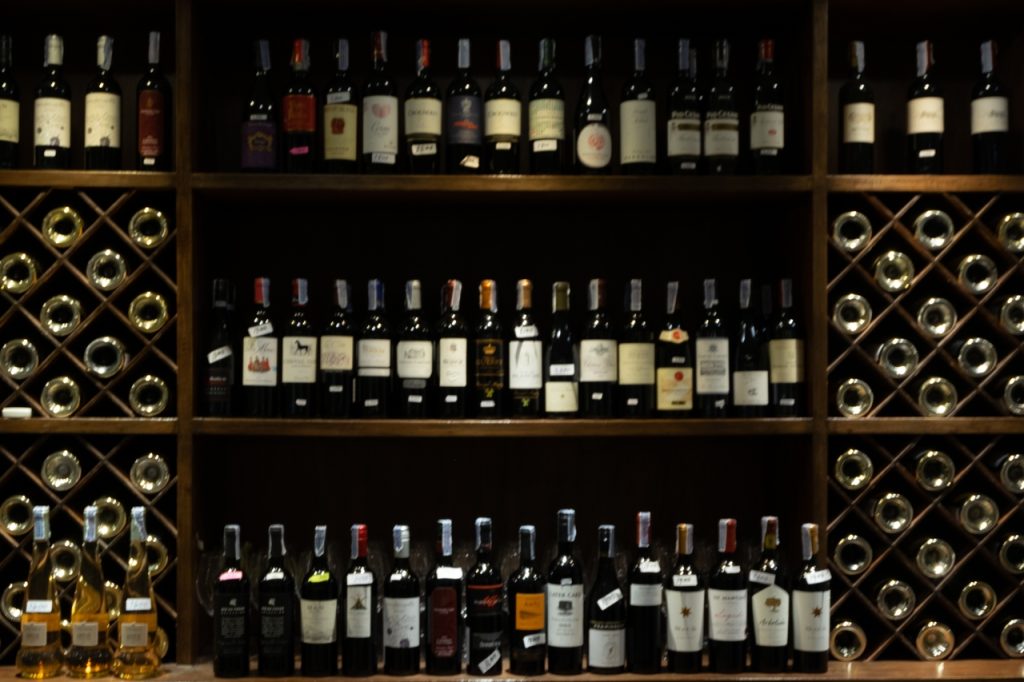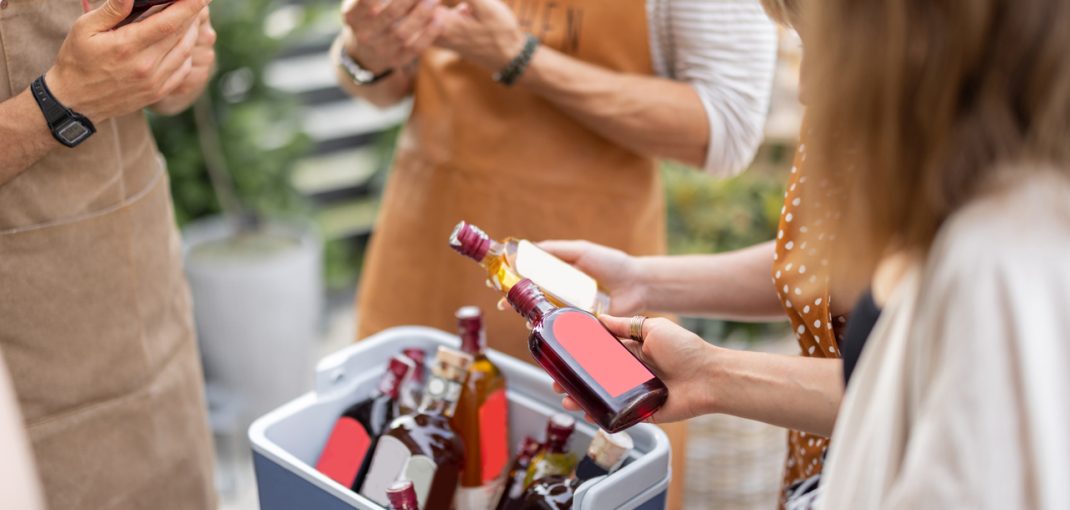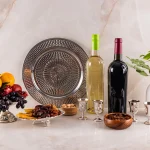Proper drink storage for long-lasting freshness is essential for preserving the flavor, aroma, and quality of your beverages, whether alcoholic or non-alcoholic. From keeping your whiskey’s rich aroma intact to maintaining the crispness of your beer or the freshness of juices for cocktails, knowing how to store drinks correctly can save money, reduce waste, and ensure every sip is as enjoyable as intended. Studies show that improper storage can lead to up to 20% beverage spoilage, making proper preservation more important than ever.
Understand Your Drink’s Storage Needs
Each drink, whether alcoholic or non-alcoholic, has unique storage requirements to preserve its flavor, aroma, and quality. For alcoholic beverages, like wine, whiskey, and beer, storage often depends on the type and aging process. Red wine should be stored at 55–65°F, while white wine prefers 45–50°F. Always store wine bottles horizontally to keep the cork moist and prevent air from compromising the flavor.
For fresh juices, kombucha, or smoothies, use airtight containers and refrigerate immediately to slow oxidation. Adding a splash of lemon juice can extend their freshness. Coffee beans used in cocktails or mocktails should be stored in opaque, airtight containers at room temperature, and only ground as needed to retain maximum aroma and taste. Following these drink storage tips ensures every sip remains fresh and flavorful.
Use Airtight Containers and Temperature Control to Keep Drinks Fresh
The simplest way to preserve freshness is by using airtight containers. Alcoholic drinks like spirits and liqueurs should be stored in tightly sealed bottles to prevent oxidation, which can affect their flavor. Glass containers are ideal for both alcoholic and non-alcoholic liquids, such as milk, kombucha, or juices. For fizzy drinks like soda or sparkling wine, specialized caps can help retain carbonation.
Temperature consistency is vital, especially for beer, wine, and any perishable non-alcoholic drinks. Store these in the main section of your fridge, away from the temperature fluctuations of the door. For long-term storage, consider investing in a wine cooler for wine or a mini-fridge for beer or soda. Avoid overcrowding your fridge to ensure optimal air circulation, which helps maintain the right temperature for your drinks.
Minimize Light Exposure and Maintain Clean Storage for Fresh Drinks
Light is a significant enemy to both alcoholic and non-alcoholic drinks. UV rays can degrade the quality of beer, wine, and even olive oil. To preserve their taste and aroma, store these beverages in dark bottles or opaque containers. If you don’t have dark storage options, wrap the bottles in foil or store them in dark cabinets to shield them from harmful light exposure.
Regularly cleaning your storage areas is equally important. Spills should be wiped up immediately to avoid bacterial growth, and expired drinks should be discarded to prevent contamination. Keeping your fridge, wine rack, or pantry tidy ensures that you know exactly what you have on hand and can easily spot any potential issues before they affect the quality of your drinks.

Freeze Drinks for Long-Term Preservation
Freezing is an effective way to extend the shelf life of many beverages. For alcoholic drinks like wine or cocktails, you can freeze leftover liquid in ice cube trays and store them in airtight bags for future use. This method is ideal for using in sangria, wine spritzers, or adding to cocktails. Smoothies or juice-based drinks for non-alcoholic cocktails can also be frozen in cubes for easy use later on.
However, avoid freezing carbonated drinks like beer or soda, as freezing can cause them to lose their fizz or even explode. When freezing liquids, make sure to leave enough room in the container for expansion as the liquid freezes.
Specialized Storage Solutions to Preserve Beverages
For wine lovers, dedicated wine coolers are an excellent investment. These coolers maintain the perfect temperature and humidity for wine, keeping it fresh and ready to drink. For beer enthusiasts, a kegerator can keep craft brews at the optimal temperature. If you store multiple types of alcoholic beverages, a dedicated fridge or mini-fridge can ensure that your drinks stay at the correct temperature without overcrowding your primary fridge.
Non-alcoholic beverages, such as kombucha or cold brew coffee, benefit from specialized containers designed to preserve their carbonation and freshness. Consider vacuum sealing for long-term preservation of homemade juices or even pre-mixed cocktail ingredients. Vacuum sealing removes air from containers, slowing down oxidation and extending shelf life.
Label, Track Expiry Dates, and Rotate Drink Stock for Maximum Freshness
Labeling drinks with the date of purchase or preparation is essential for keeping track of their freshness. This habit is particularly helpful for homemade or bulk-bought drinks like juices, kombucha, and cocktails. Waterproof labels are ideal for this purpose, ensuring that your notes remain legible even in cold or damp environments.
To avoid waste and ensure you’re drinking your oldest beverages first, practice the first-in, first-out (FIFO) method. Rotate your stock regularly to make sure that older drinks are consumed before newer ones. Regularly check expiry dates for perishable drinks like milk, beer, or kombucha, and ensure your storage space is clean and organized.
Cheers to Freshness and Flavor in Every Sip
By following these tips, you can maximize the freshness and longevity of both alcoholic and non-alcoholic drinks. Proper storage not only helps you enjoy your beverages longer but also minimizes waste and preserves the full flavor of your favorite drinks. Whether you’re storing wine, beer, cocktails, or fresh juices, keeping them in the right conditions will ensure the best taste every time.
Ready to throw a party or stock up for your next gathering? Head over to our next blog, Budget-Friendly Party Ideas: Save Money Without Compromising Fun, and find out how to make the most of your perfectly stored drinks while keeping costs low!






